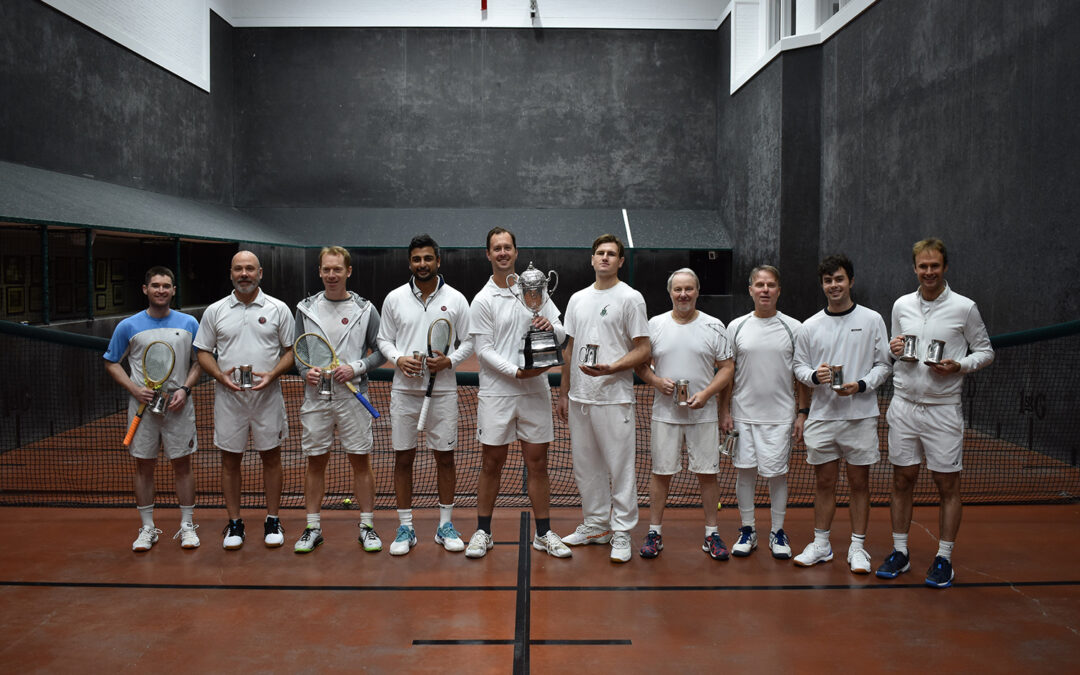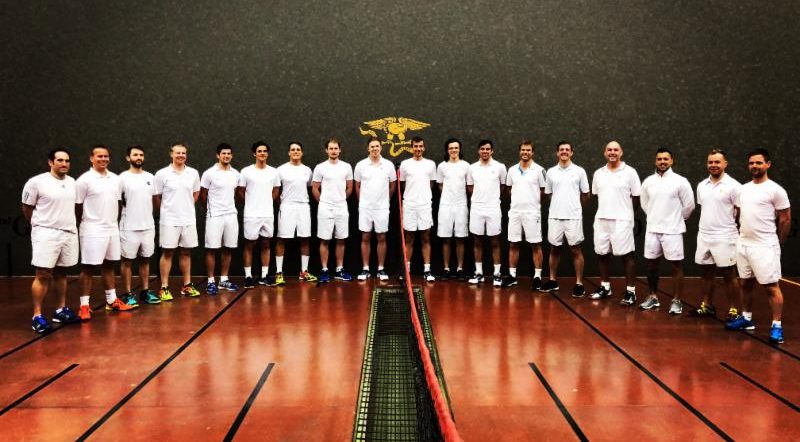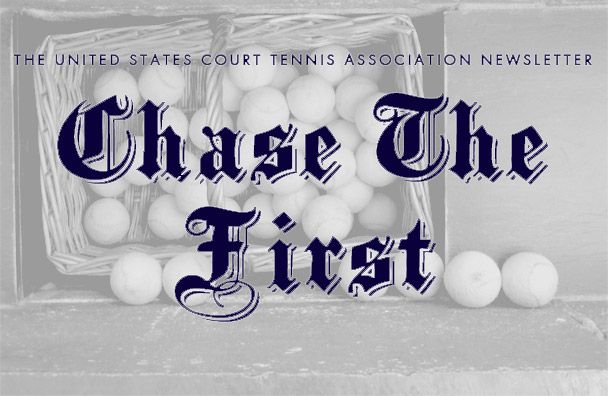On the Eve of the Whitney Cup
In Praise of a Small Field
by George Bell bell.george@gmail.com
One of the enduring knocks against our game, possibly even more than its obscurity, is that nobody plays it. Tennis participation is 24 million, or just under 8% of the US population, not huge, but for every 24,000 of them, there is one of us. PhDs in dead languages outnumber us, too. Imagine a slender folder holding the last copy of the rules and customs of a nearly forgotten game, misplaced between volumes in a library of infinite books.
And yet, here we are.
I always have this thought in early December as we round into the Whitney Cup, our largest annual gathering. Over that weekend, as we pack the galleries or fill the room for our elegant USCTA annual dinner, the thought comes back to me.
Our smallness may be our greatest strength.
We know one another, some more than others. In many cases, our parents and grandparents knew each other. In public, when we hear the words chase, hazard, penthouse, and gallery, we know the double meaning instantly, but it’s not for others to know – it’s ours alone. The language and the scoring and the talk of our bent racquets and the spin of the ball – these are ours alone too.
Where else would you see the crowd roaring as it stands to applaud a sexagenarian who just hit a force to the dedans; or the oldest of friends, pitted against each other for the weekend, re-jiggering their team line-ups? We don’t have a secret handshake, banners with Greek letters, or national affiliations. After centuries of relative flourishing, with its alumni of princes and peasants, our sport has shrunk to the point that it’s nearly an underground pursuit – a global sleeper network of activists who flick their noses in a certain way when passing each other in public, reaffirming their commitment.
A small gesture often goes further than a large one. Your eye takes in the joy of a single spring-plowed field with an intimacy that vast landscapes can’t match. And a small draw in our game is a little jewel; we know almost all of the competitors at a single glance and we can see already how the facets of the matches will unfold. In our game, the greatest players and champions walk freely among us and often stay in our houses. That they aren’t rewarded for their skills with more compensation is a travesty; we are left with the currency of our friendships to fall back on. As for our juniors, more is better, and more diversity among us as well – for too long, we were locked in traditions that were stifling. But societies, however small, change too.
Our trophies are often exquisite, with many tournaments named for families who cherished our game and worked to secure it. With diligence, passion and means, a few people can out-perform a committee many times larger. Small has had its rewards for us. We have our share of egg-heads, blusterers and whackos, but the limited size of our tribe somehow makes us more tolerant, less quick to dismiss as we might otherwise in our pursuits outside the game.
The next time an acquaintance offers the quip we all know too well – “So if I owned a racquet, I’d be ranked!” Tell them it’s not ownership that gets you into the game and keeps you there, it’s persistence, skill and heart. Proficiency can take a while but we’re a patient lot. After all, our beautiful tortoise of a game has survived for over 900 years.
Let the 90th Whitney Cup begin.
Comments welcome: bell.george@gmail.com
NY Times Article by Allison Danzig on the Whitney Cup – April 4, 1930



